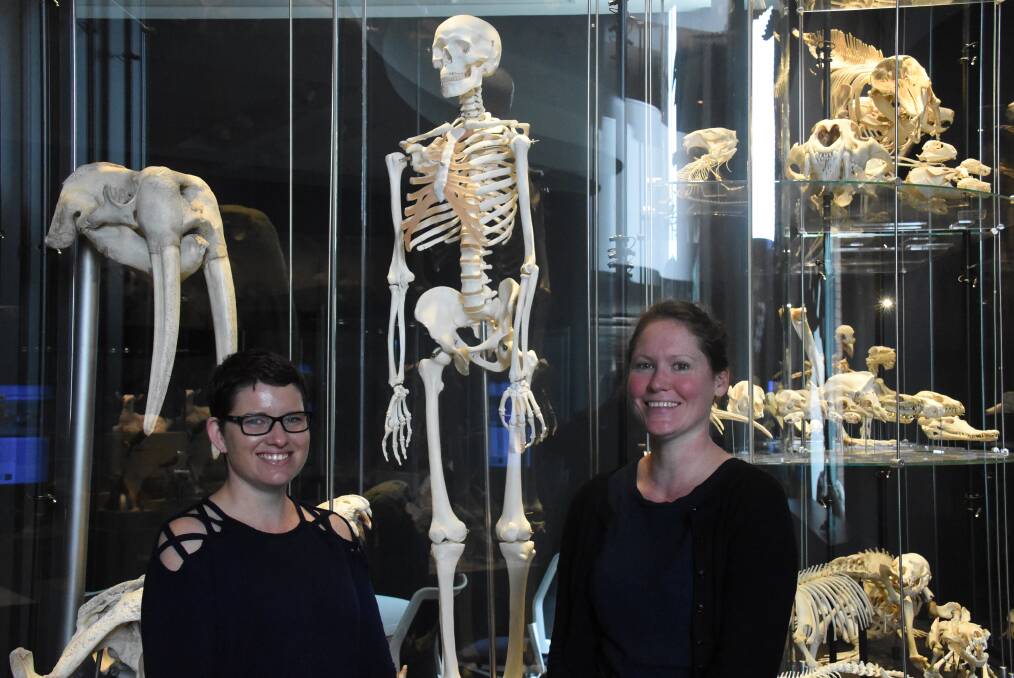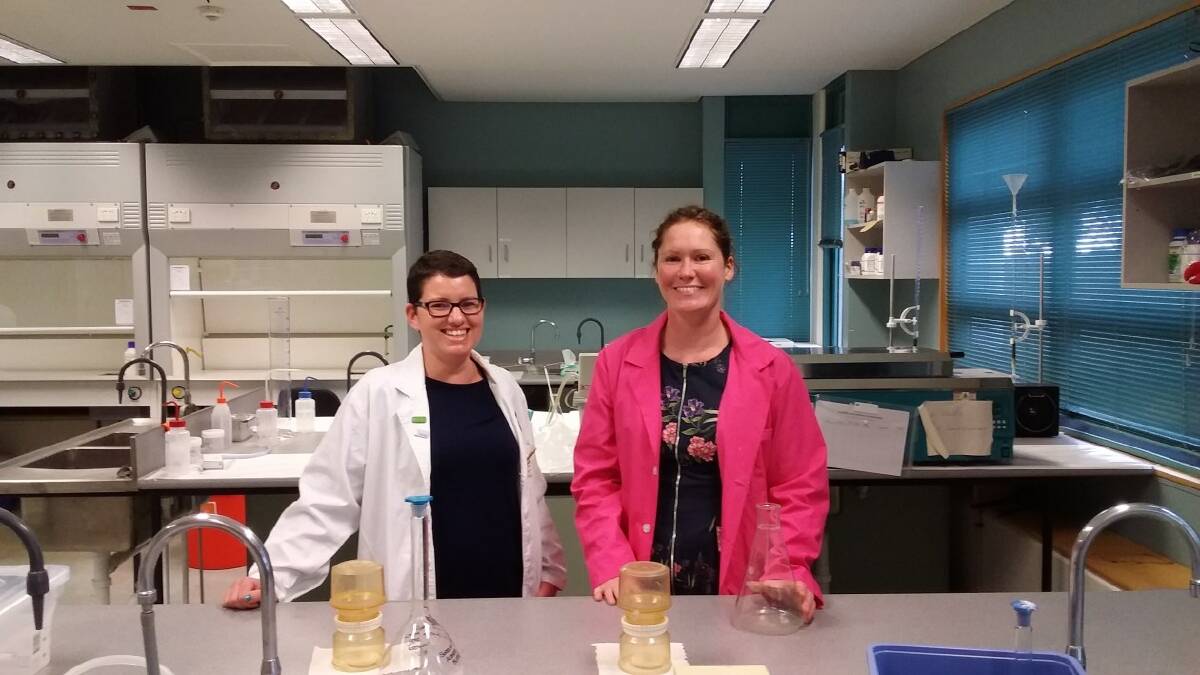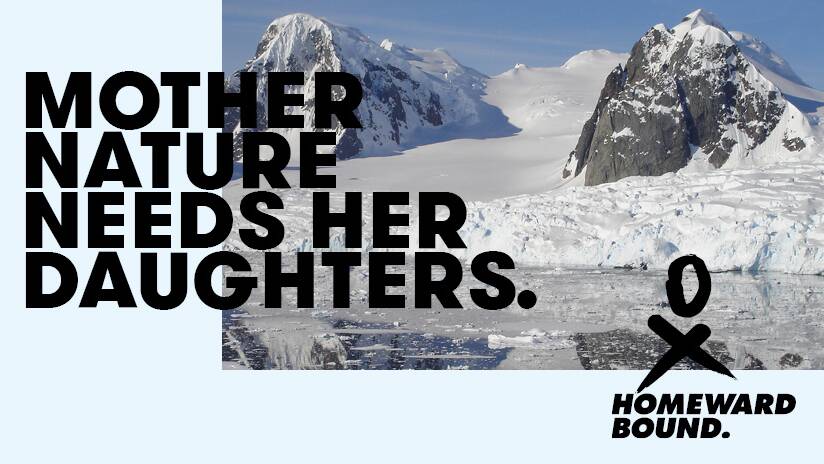
When she became a scientist, Dr Mary McMillan never expected to dress up as a giant penguin and talk about DNA.
Subscribe now for unlimited access.
or signup to continue reading
Nor to visit Antarctica. The geneticist and her colleague Dr Debbie Bower, a conservation biologist, are heading to the frozen south at the end of the year for the Homeward Bound global leadership program.
“It’s a once-in-a-lifetime thing,” Dr McMillan said.
“One of those places that you always dreamed that you might go one day – but it’s actually happening.”
They will join 78 other female scientists from around the world aboard the MV Ushuaia from December 31 to January 19.
“It's going to be wild – so many women passionate and excited about making change will be great,” Dr Bower said.
To help raise funds for their trip, Dr McMillan will be speaking about “Playing God” at the Wicklow Hotel, Armidale at 6.30pm on Wednesday, October 10.
And, yes, she will be wearing a penguin onesie.
READ ALSO:
Dr McMillan and Dr Ken Dutton-Regester, from the Queensland Institute for Medical Research Berghofer, will talk about genetics, DNA technology, gene editing and the manipulation of our future – basically playing God with our genes.
The event is part of the New England North West Regional Science Hub’s popular Science in the Club series – science discussions aimed at a general audience.
“The whole idea is to break down the barriers between scientists and the rest of the community,” Dr McMillan said.
“A lot of the time, the general community doesn’t know what scientists do.
“I’m a geneticist, so I play with genetically modified organisms in my lab.
“There’s a lot of fear-mongering on social media – images of tomatoes with syringes stuck through them. People are scared of it because they don’t understand it.
“If you understand what DNA is, how it's made and put together, and then you learn about how we can alter that to make GMOs, you become a lot less frightened of it.
“We want people to learn a bit more about this stuff.”
Events like this, Dr Bower said, “show that everyone can be a scientist, and do science, and science is just a process and a way of thinking”.
Growing up in regional Australia (Dr Bower in Townsville, and Dr McMillan on a farm outside Mudgee), they both thought that an interest in science would lead to their becoming vets or medical doctors.
Dr McMillan, after watching too much CSI, decided to study forensic science at UNE, but became hooked on biology. Dr Bower began a zoology degree to help stop animals going extinct.
“I realised it wasn't just wildlife that I loved, but it was asking questions and finding out answers,” she said.
They encourage others to pursue a career in science.
“We want to make regional people aware that science is part of everyday life and that there are so many opportunities you can get involved in,” Dr McMillan said.
“It can take you to all sorts of places – including Antarctica.”
“It's a great job,” Dr Bower agreed. “I get to go to amazing places like Papua New Guinea and Madagascar.”

Homeward Bound equips 1000 women in STEMM (science, technology, engineering, mathematics and medicine) fields with skills to change the world for the better, by addressing the gender imbalance in science leadership.
“Homeward Bound stems from a lack of diversity in science,” Dr Bower said.
“It's called the leaky pipeline. As you move through up to senior positions, you lose more and more women in particular.
“Homeward Bound is a global initiative to train and empower women, and create this network of 1000 women around the world with the tools and the capability to become leaders in science, to look at why we have these problems, what the boundaries are and then to create this force to change it."
The lack of women in science, they suggest, comes down to systematic biases, and the traditional view that science is a male preserve. It’s still rare to see women in a professorial position; someone like chimpanzee expert Jane Goodall is the exception.
This very week, Donna Strickland was only the third woman in 65 years to receive a Nobel Prize in physics – since Maria Goeppert-Mayer in 1963. (Marie Curie received the prize for physics in 1903 and chemistry in 1911.)
The Homeward Bound scheme is part of a growing trend for women to work in STEMM fields. The 80 women include teachers, researchers, and policy-makers from different nationalities and backgrounds, including France, India, Mozambique, Colombia, Costa Rica, and Iceland.
The Antarctica voyage is the culmination of a year-long program that includes personal development and working together on a research project.
“We’re going to come away with so many more connections than we had before,” Dr McMillan said.

“Science is a really competitive industry to work in. You're always competing against each other for funding and awards, so to actually have a network who are all trying to work together towards a common goal is unique in science.”
This will be the first time either woman has been to Antarctica – and they’re gearing up for 24 hours a day of daylight.
“I don't know that you can ever imagine what it's going to be like just by looking at pictures in a book,” Dr McMillan said.
To actually set foot on that continent will be amazing.
“I’m excited just to experience what it’s like – the vastness and the coldness.”


